Manchester International Festival welcomes David Lynch, Yoko Ono and more
We’ve rounded up a few of our highlights from the festival’s visual arts programme
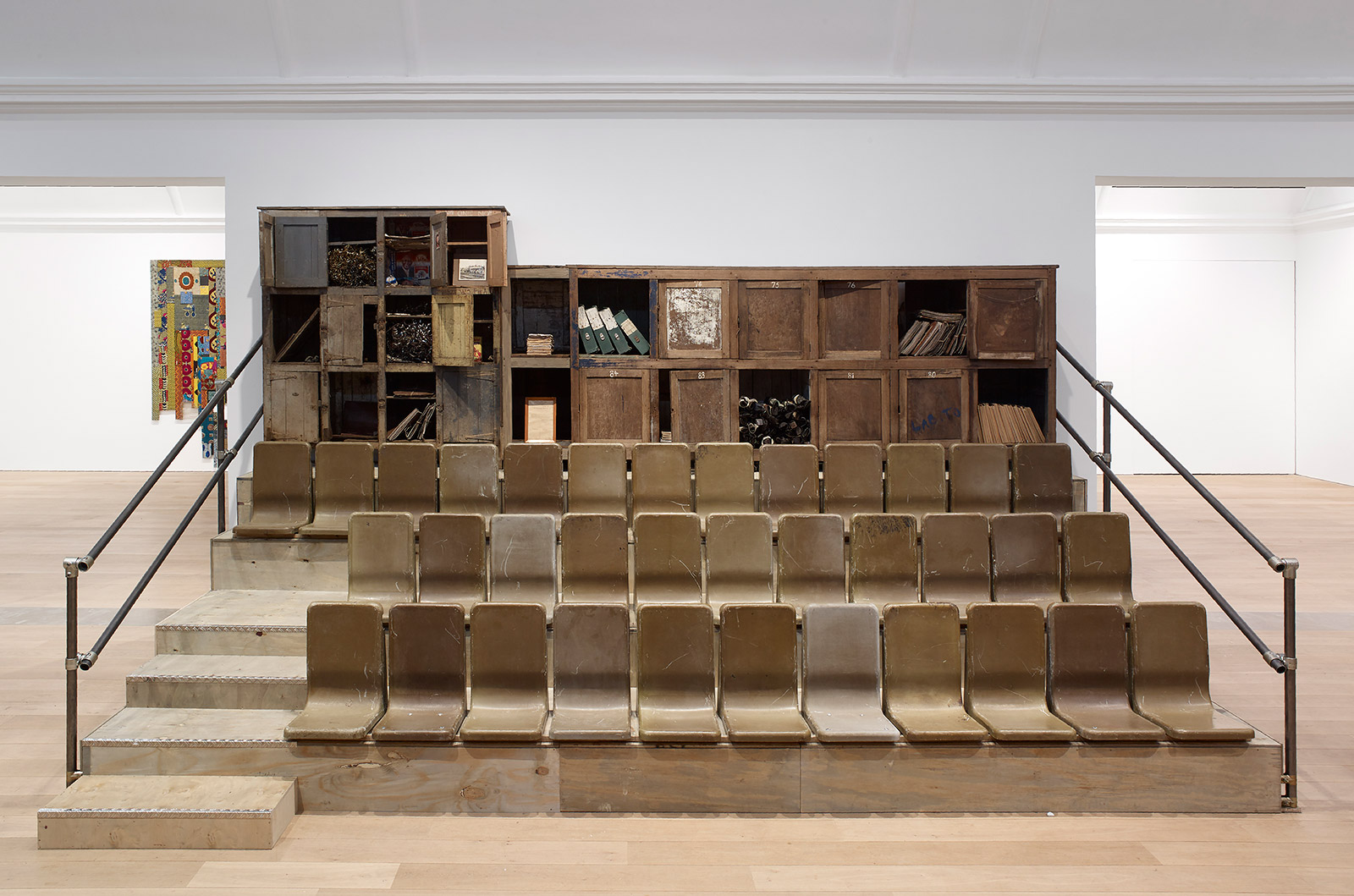
Receive our daily digest of inspiration, escapism and design stories from around the world direct to your inbox.
You are now subscribed
Your newsletter sign-up was successful
Want to add more newsletters?

Daily (Mon-Sun)
Daily Digest
Sign up for global news and reviews, a Wallpaper* take on architecture, design, art & culture, fashion & beauty, travel, tech, watches & jewellery and more.

Monthly, coming soon
The Rundown
A design-minded take on the world of style from Wallpaper* fashion features editor Jack Moss, from global runway shows to insider news and emerging trends.

Monthly, coming soon
The Design File
A closer look at the people and places shaping design, from inspiring interiors to exceptional products, in an expert edit by Wallpaper* global design director Hugo Macdonald.
The Manchester International Festival – a biennial incubator of international art and cultural projects – is in full swing, offering a diverse spread of exhibitions and events across the city. The festivities kicked off earlier in July with Yoko Ono’s mass ring-a-thon, Bells for Peace. The artist’s message was clear as, via video link, she instructed crowds in Manchester Cathedral Gardens to ‘think peace, act peace, spread peace, imagine peace’.
This triggered a crescendo of cacophonous ringing from 4,000 specially-manufactured handbells, flooding Manchester with a message of unity, peace, and hope – well worth the risk of lingering tinnitus. Artistic director and chief executive of MIF, John McGrath, described the event as ‘a joyful response to our complicated times’.
Across the city at HOME, a centre for art, theatre and film, we’re deep inside the mind of filmmaker David Lynch, as far as we ever can be. You might associate Lynch with the likes of Twin Peaks, Blue Velvet or The Elephant Man, but his peculiar approach to cinematic surrealism translates just as unnervingly into visual art. His exhibition ‘My Head is Disconnected’ unites paintings, drawings and sculpture developed by Lynch over five decades.
These are staged in a dimly lit gallery where his absurd, creepy figures and faces look as though they’re about to peel themselves off the canvas and crawl into your nightmares. In another corner of the gallery, dystopian cityscapes and a series of starkly rendered drawings of industrial revolution era machinery, evoke a very particular facet of American nostalgia. ‘I was talking to Auntie Em [Wizard of Oz], and she said there’s no place like HOME’, says Lynch.
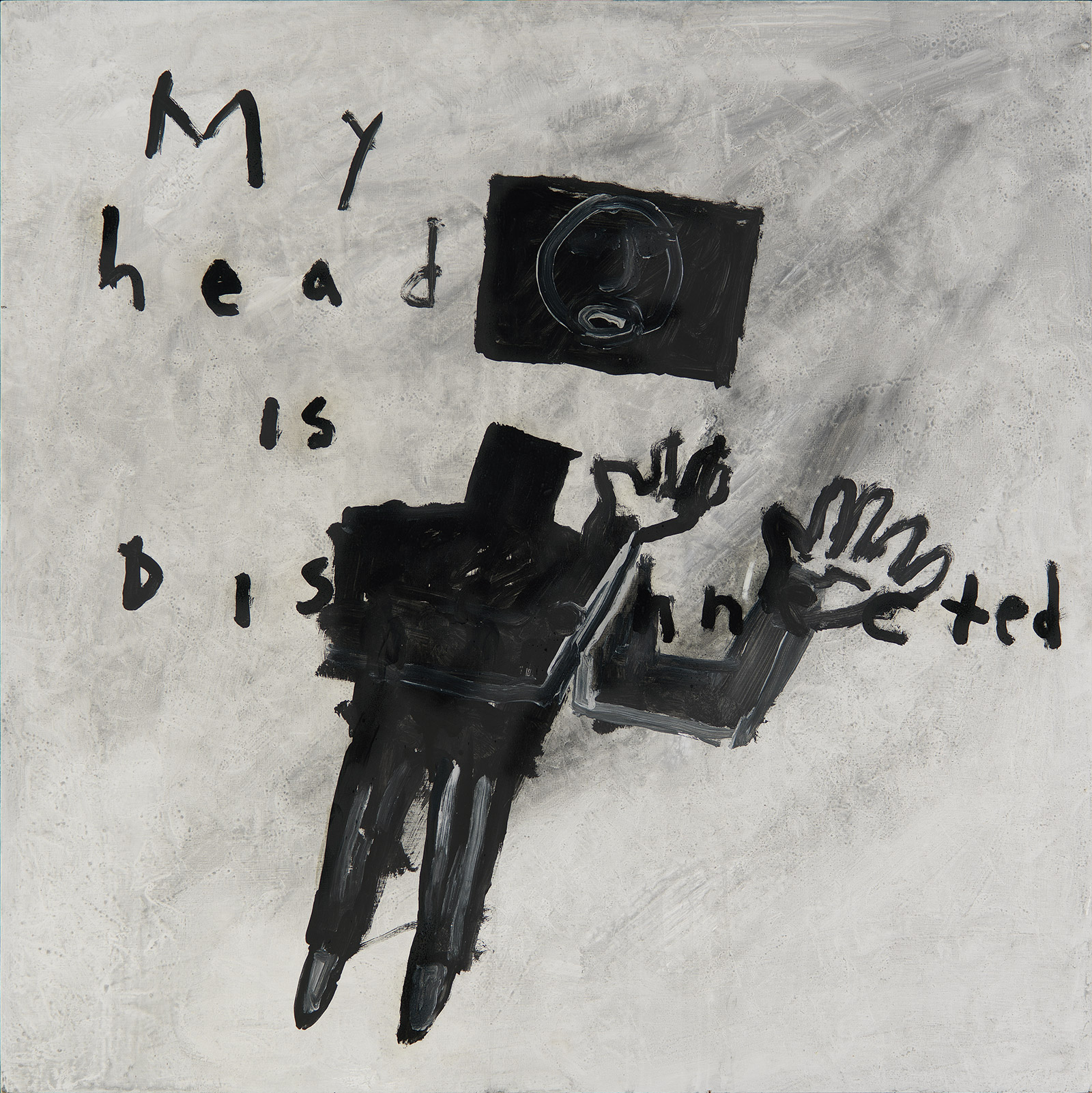
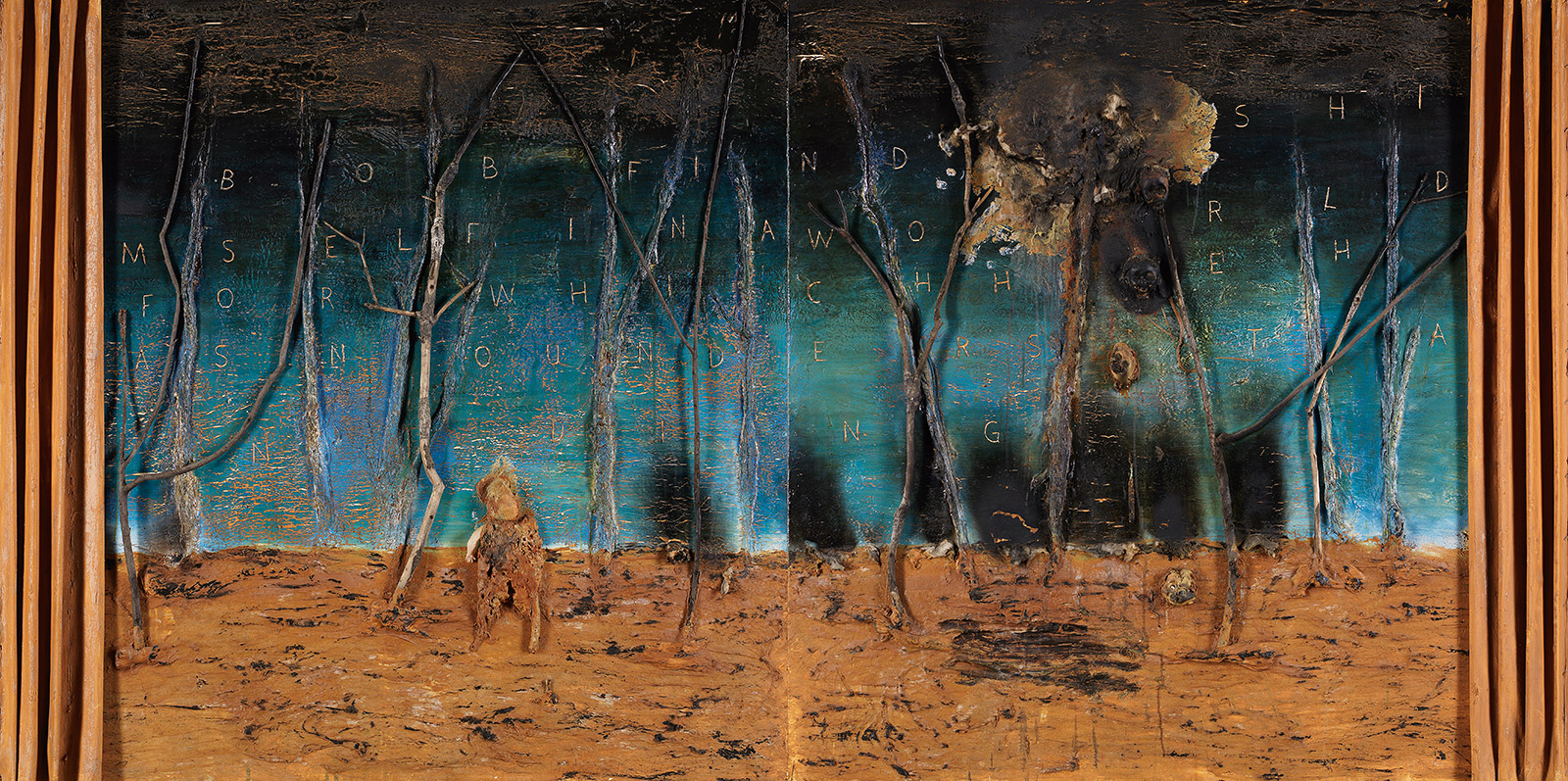
From top, My Head Is Disconnected, 1994; and Bob Finds Himself in a World for Which He Has No Understanding, 2000, by David Lynch. Courtesy of the artist
‘Parliament of Ghosts’ – the first major UK exhibition by Ibrahim Mahama – has landed at the Whitworth Art Gallery, transforming spaces into an archive of paintings, film and found objects, where one country’s trash has become the Ghanaian artist’s treasure. At its heart is a four-sided reproduction of Ghana's parliament chamber, built with tatty second-class train seats originally manufactured in Manchester, but salvaged by the artist from the abandoned Sekondi railway station.
The structure, lined with tired wooden lockers used by rail workers, tells the tale of Ghana’s Gold Coast railway built under British colonial rule, and also serves as a space for contemporary debate. ‘It’s a more futuristic thing I’m thinking about, but it uses the aesthetics of the old,’ says Mahama. Elsewhere, a mammoth concrete structure is modelled on Ghana’s stunted, modernist silos, which were built in the late 1950s with the intention to store cocoa and grain, but were left empty and unused. Mahama has given its interior space new life, in the form of an all-consuming seven-channel video installation.
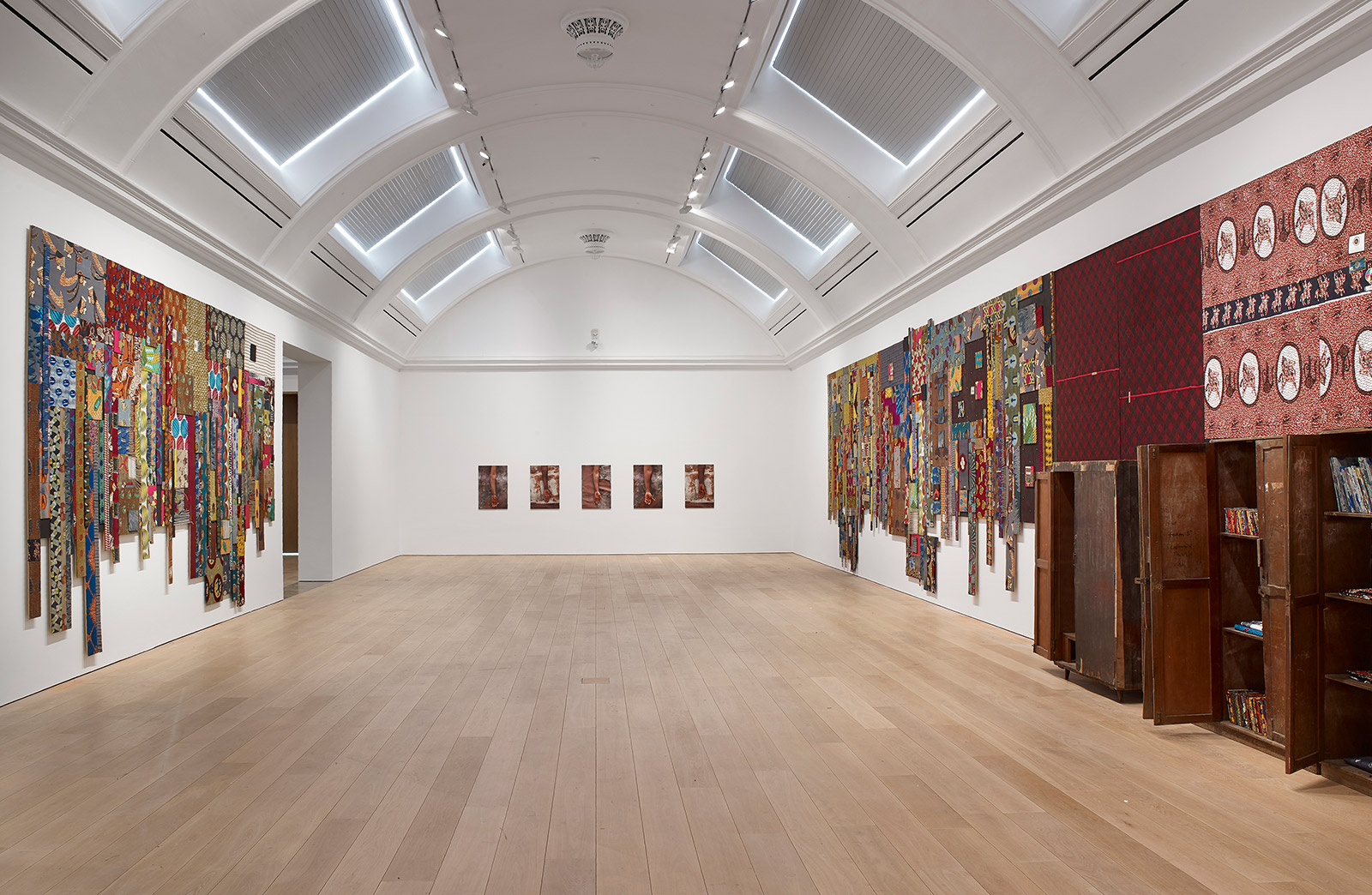
Ibrahim Mahama’s ‘Parliament of Ghosts’ at Whitworth Art Gallery.
At the Science and Industry Museum, ‘Atmospheric Memory’ by Mexican-Canadian artist Rafael Lozano-Hemmer sits at the intersection of technological innovation, architecture and public participation. The artist drew on computing pioneer Charles Babbage’s 180-year-old theory that the air holds a ‘vast library’ of every word ever spoken. ‘The idea that the atmosphere is not neutral, that the atmosphere in fact has a total recollection of anything we say, is the beginning of this project,’ says Lozano-Hemmer. The polyphonic entrance tunnel to the main exhibition ‘chamber’ is lined with thousands of speakers, each trying to break through the noise with separate soundtracks.
Inside the space – custom built from 52 shipping containers – it’s difficult to know how to digest this buffet of technology. A weathervane table is controlled by computerised fans, a queasy film of an endoscopy plays from the bottom of an empty oil drum, and in the far corner of the room is the world’s first 3D printed speech bubble. In another work, various ‘atmospheric machines’ mine the air for sounds, which then become ripples on water, 360-degree projections and plumes of fog spelling out your spoken words. A large screen projects an image of your own baffled face, unknowingly taken when you first entered the space.
Among other tangents, the exhibition discusses contemporary themes of surveillance and misuse of AI. If you start to get a sneaking suspicion that the show is all about you, you’re probably not wrong.
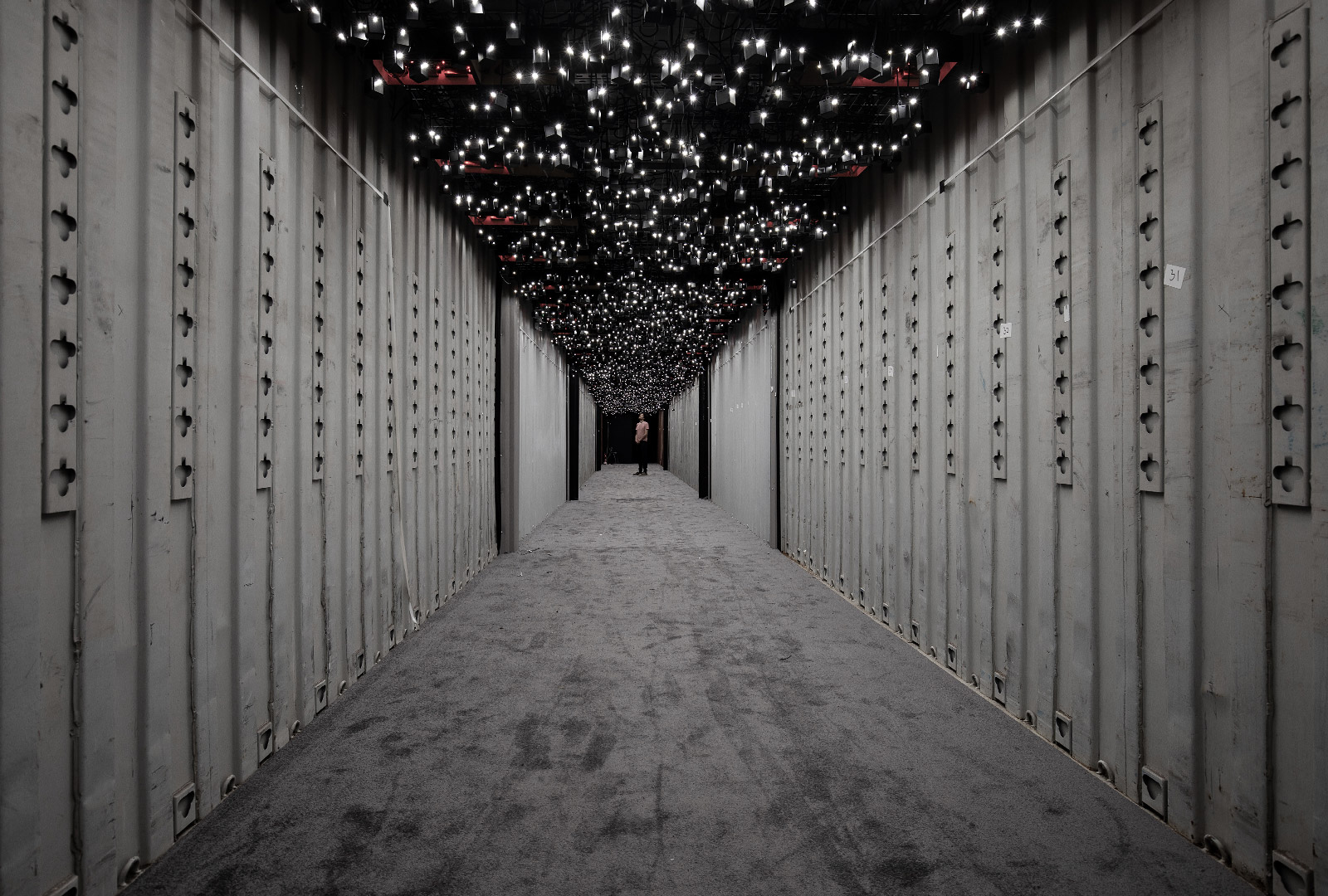
Atmosphonia, 2019, by Rafael Lozano-Hemme, installation view at the Science and Industry Museum.
INFORMATION
Manchester International Festival 2019, until 21 July, various locations. mif.co.uk
Receive our daily digest of inspiration, escapism and design stories from around the world direct to your inbox.
Harriet Lloyd-Smith was the Arts Editor of Wallpaper*, responsible for the art pages across digital and print, including profiles, exhibition reviews, and contemporary art collaborations. She started at Wallpaper* in 2017 and has written for leading contemporary art publications, auction houses and arts charities, and lectured on review writing and art journalism. When she’s not writing about art, she’s making her own.